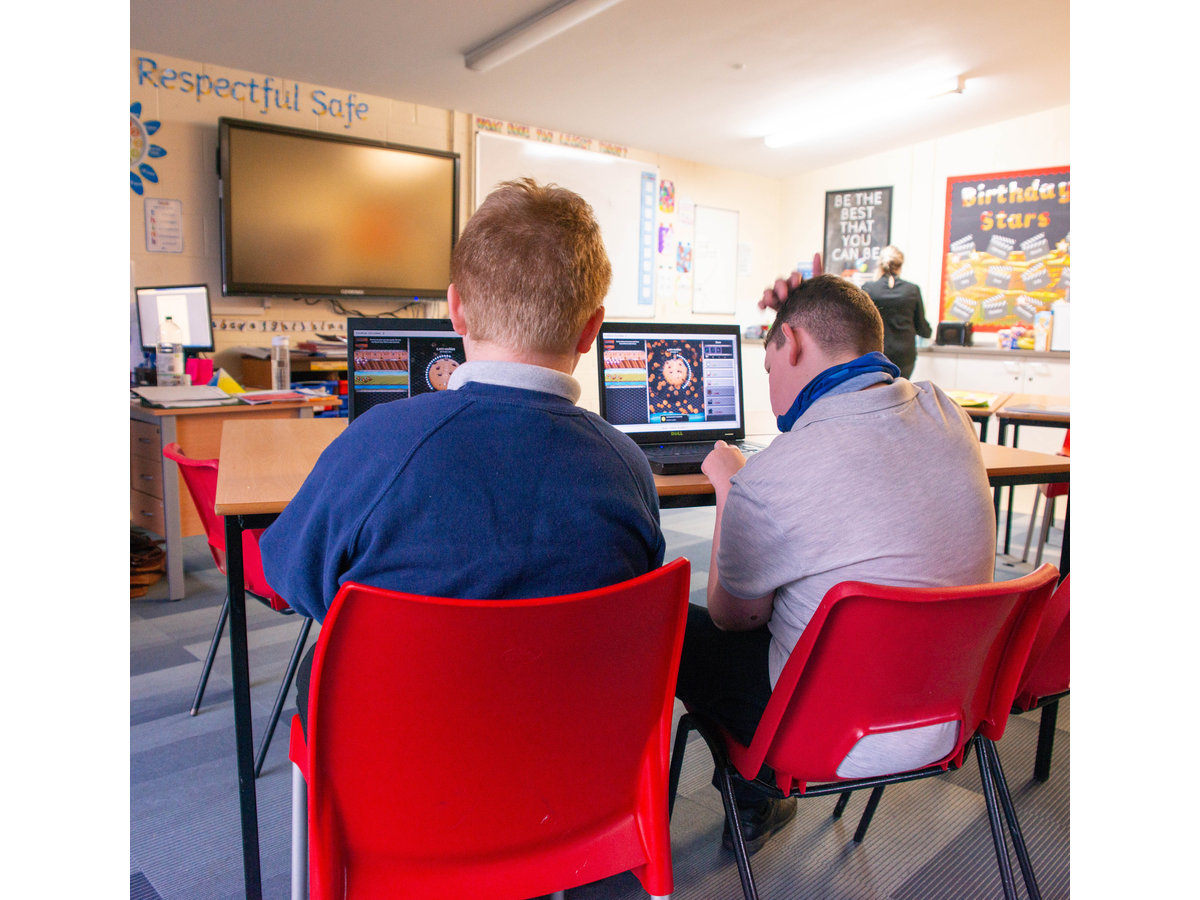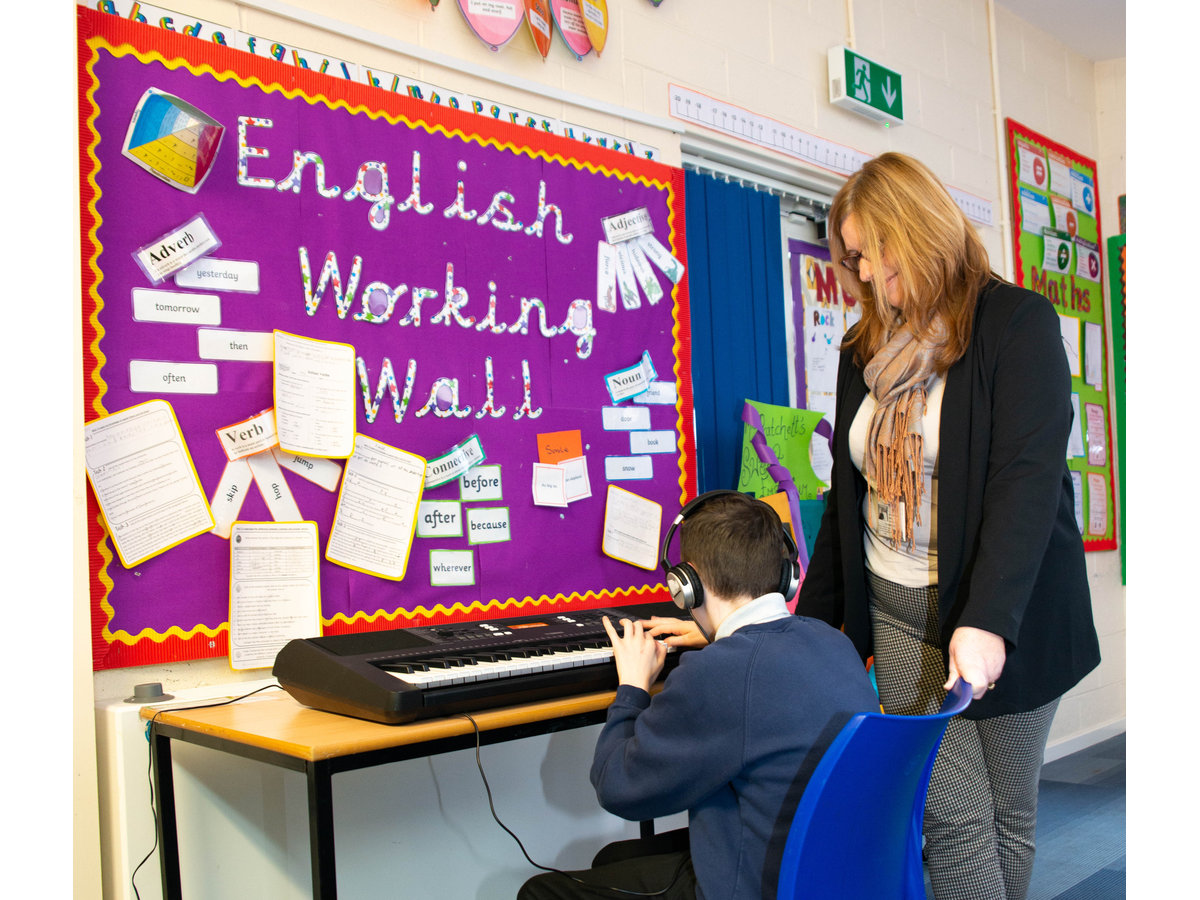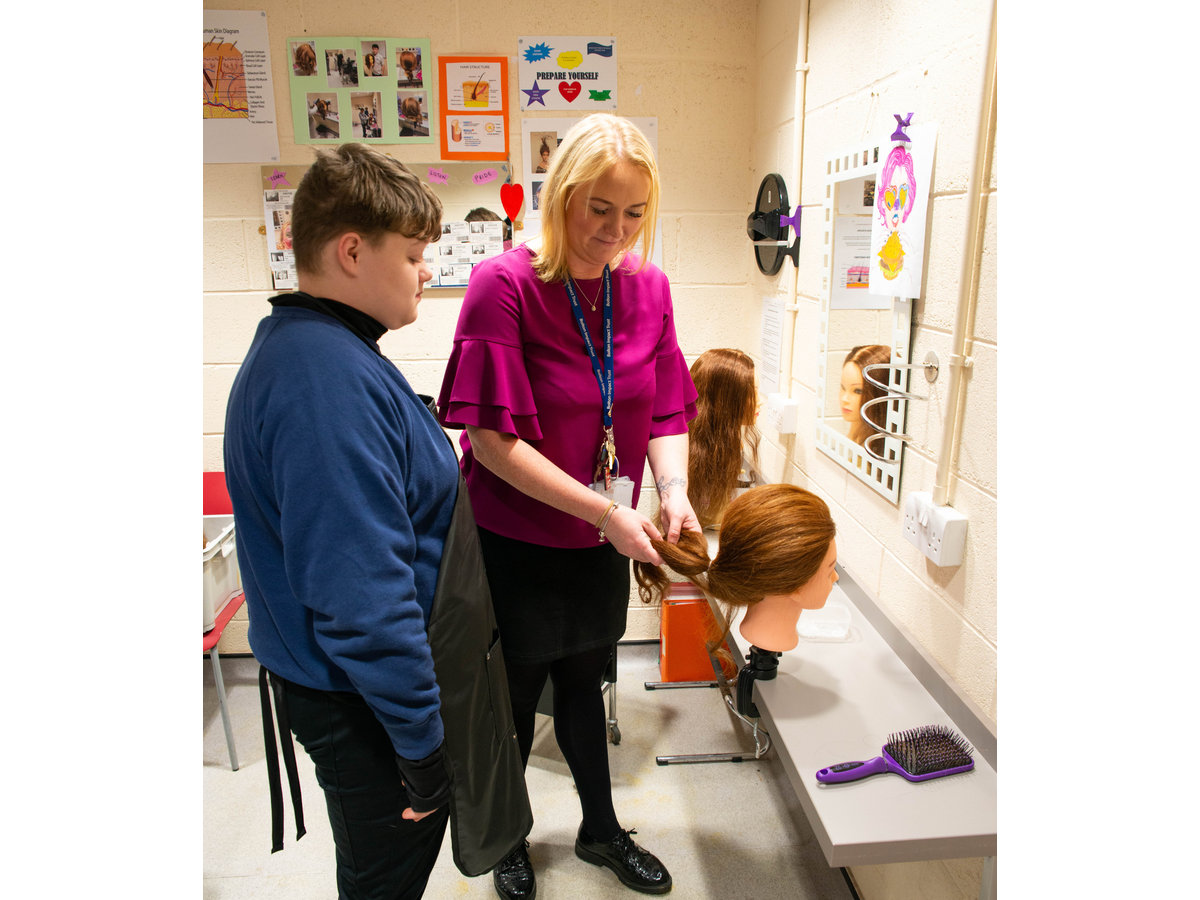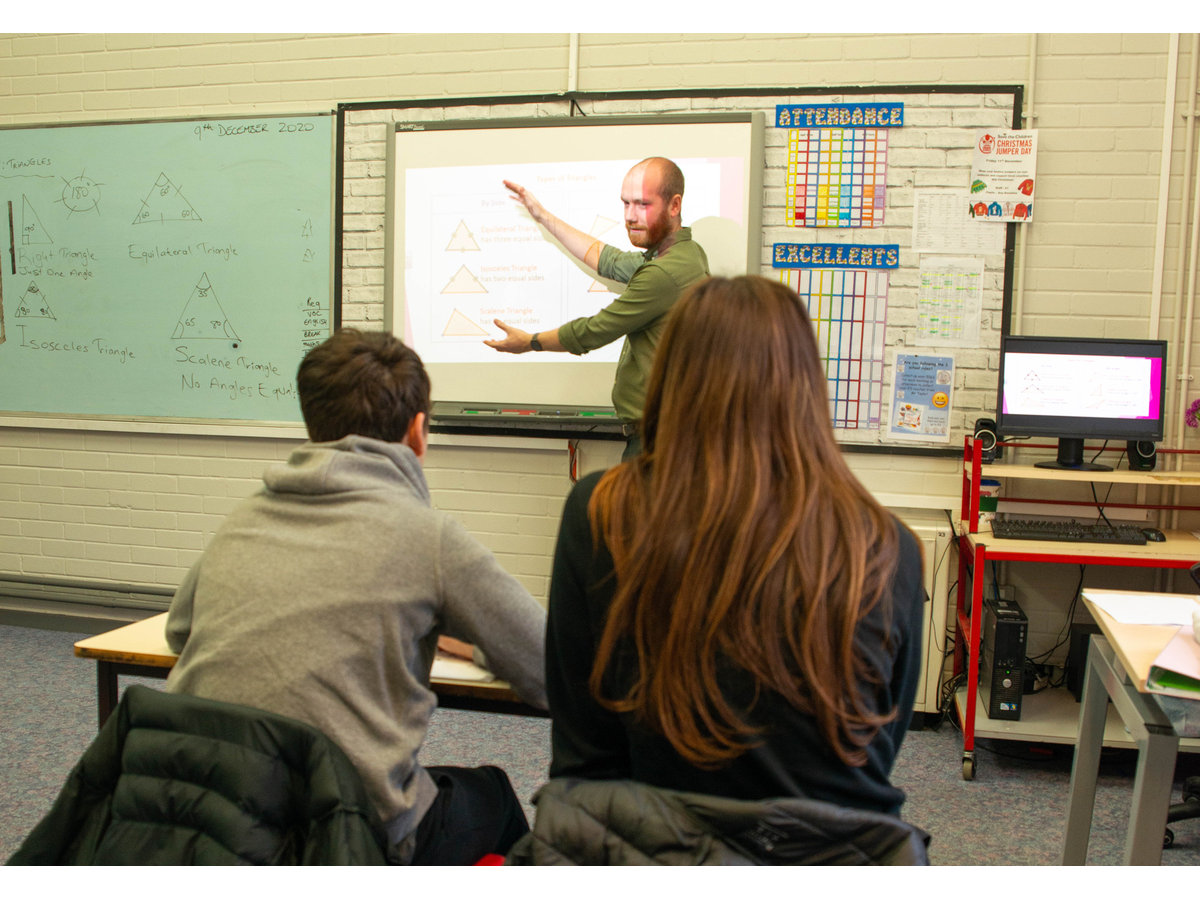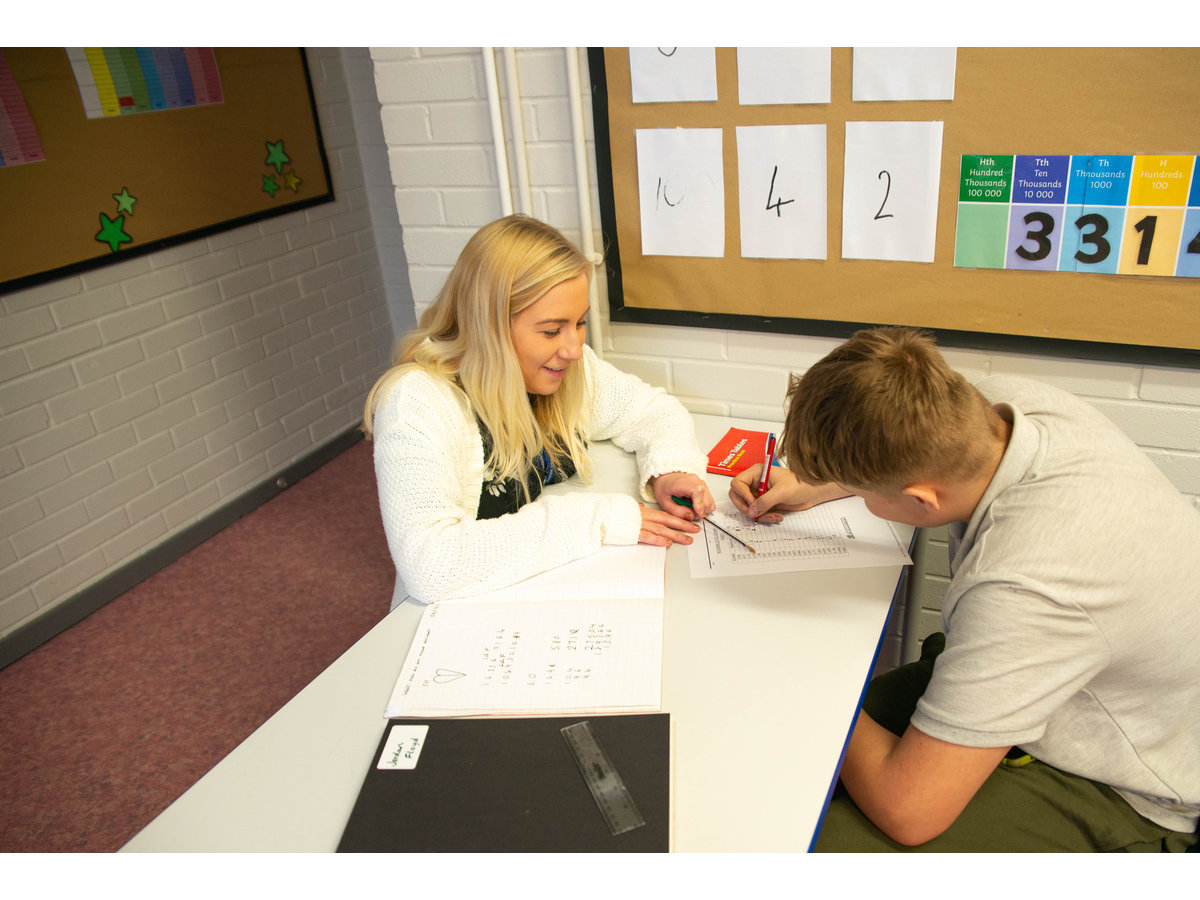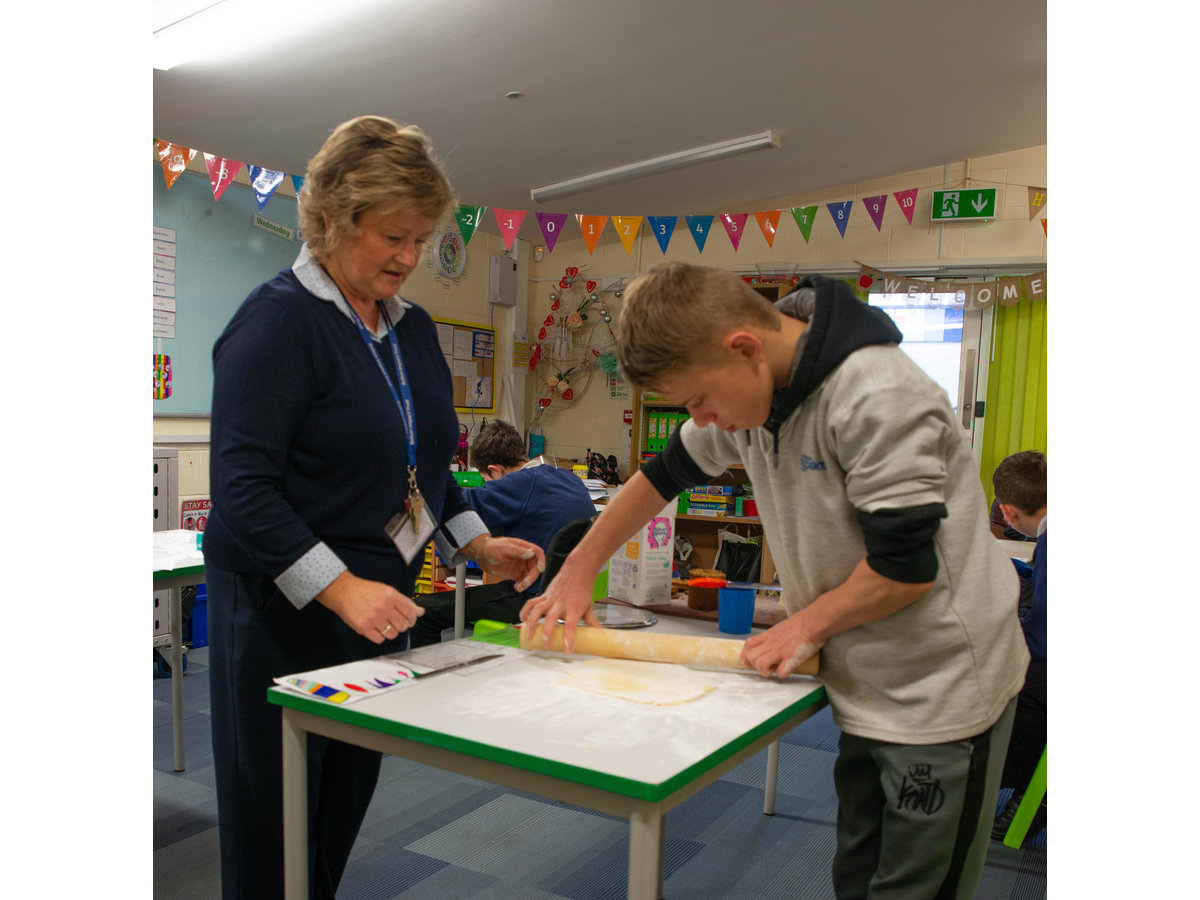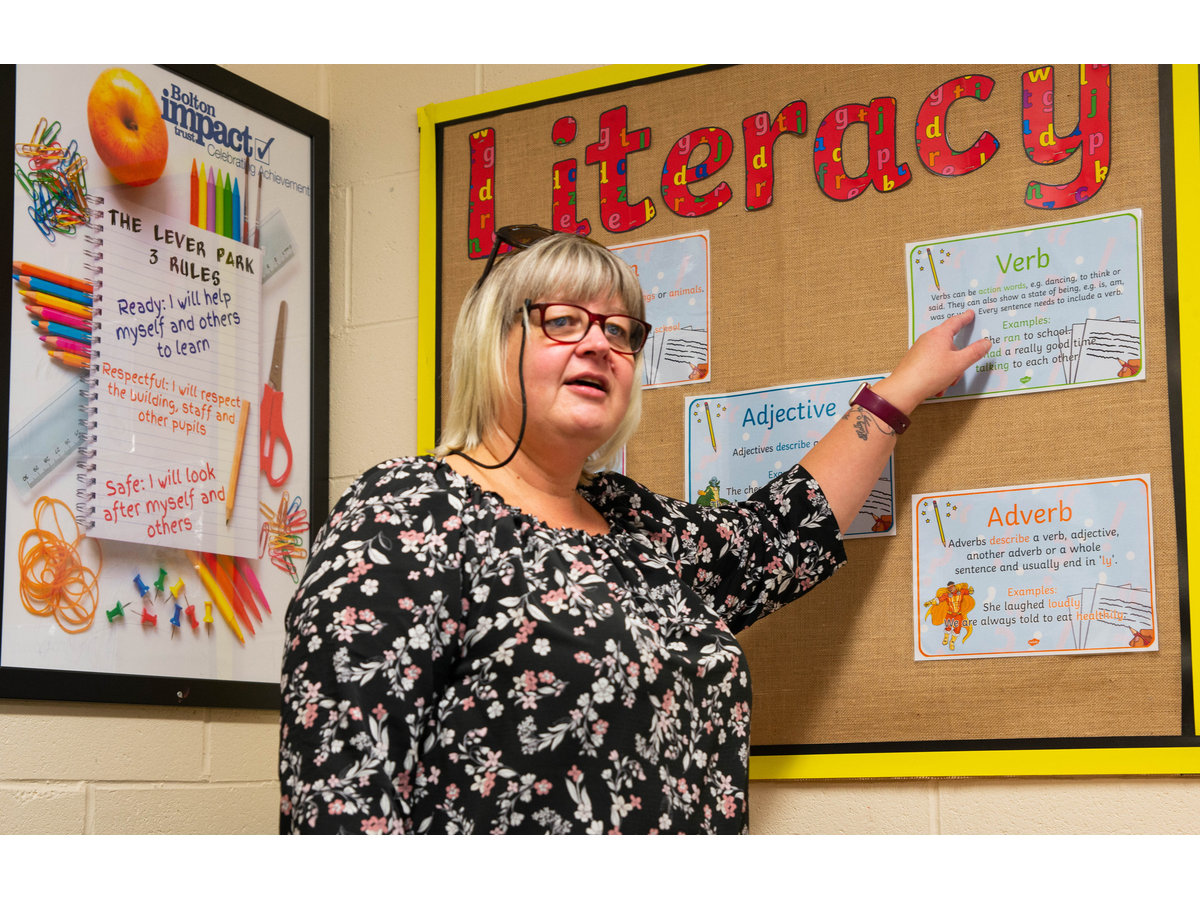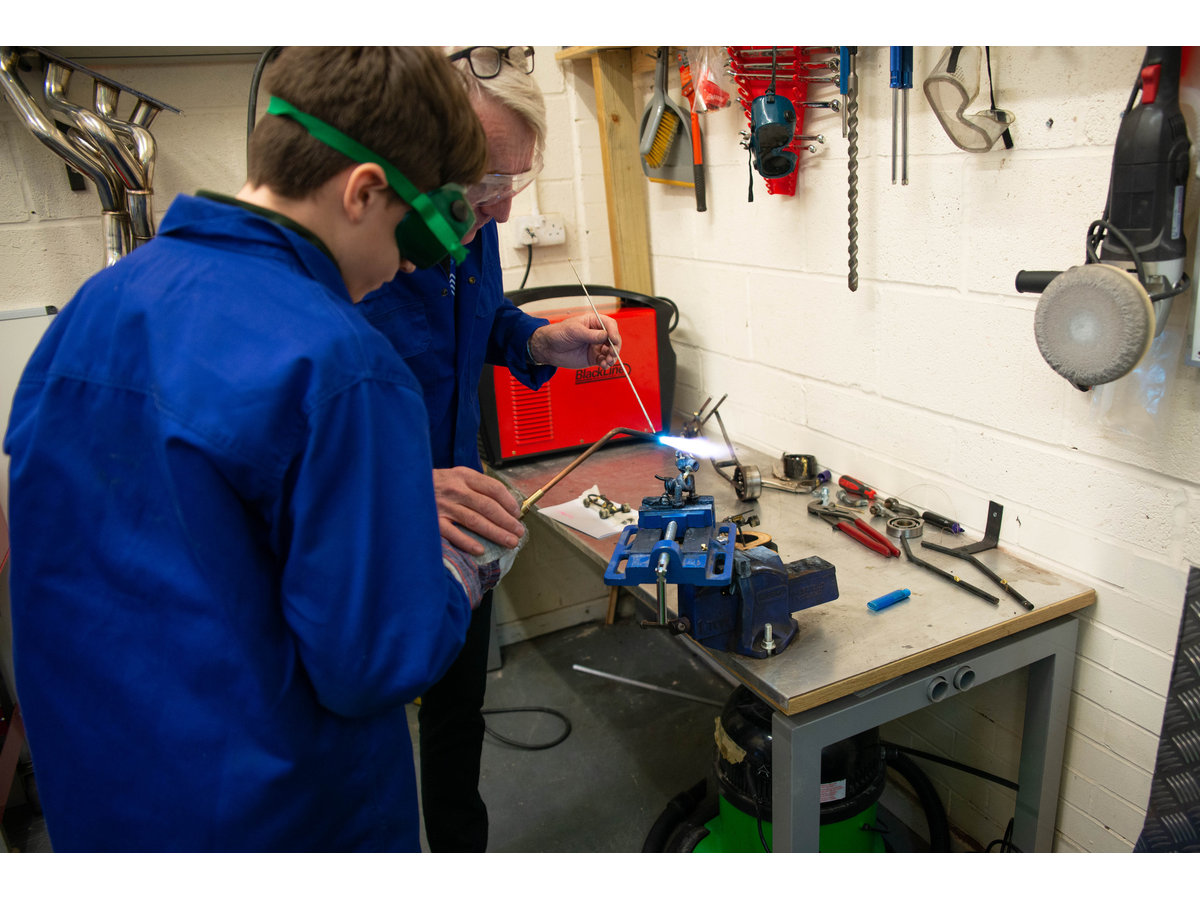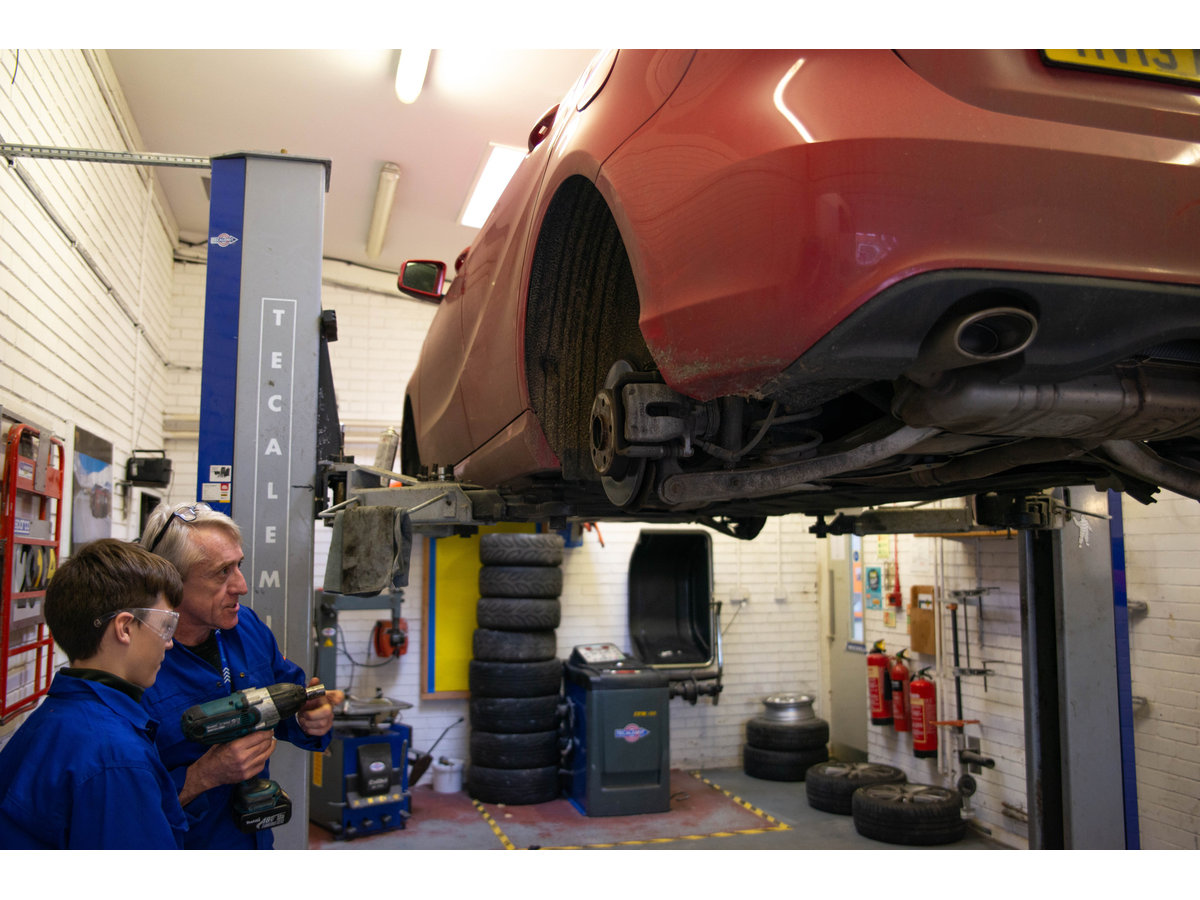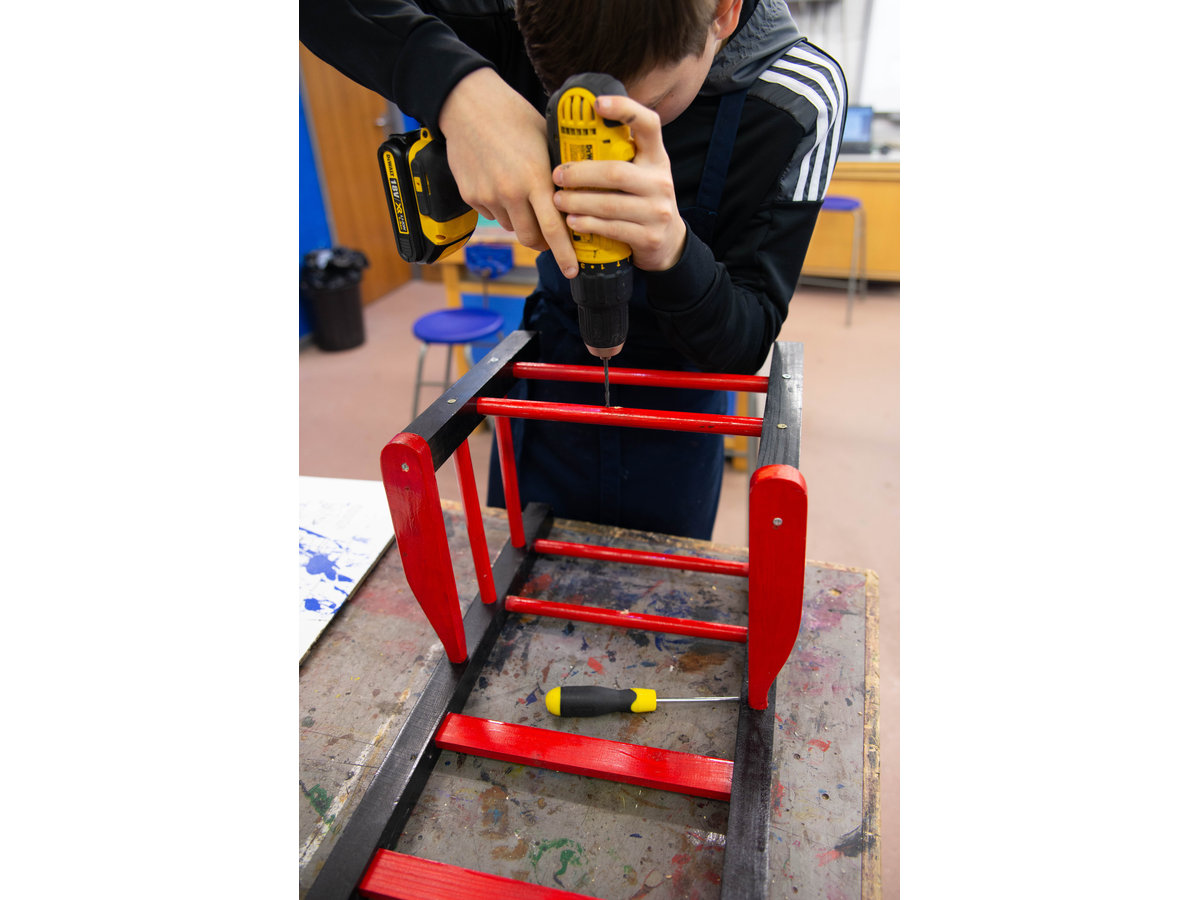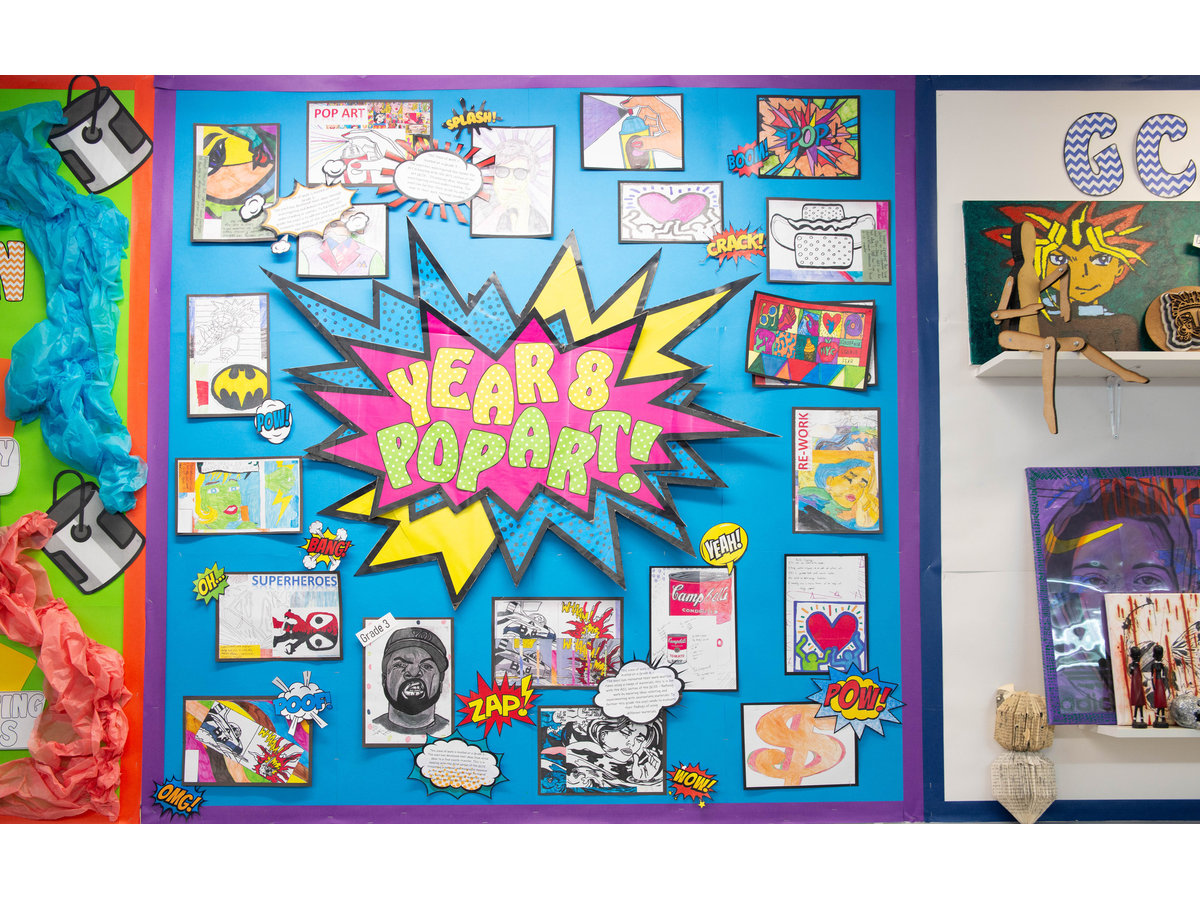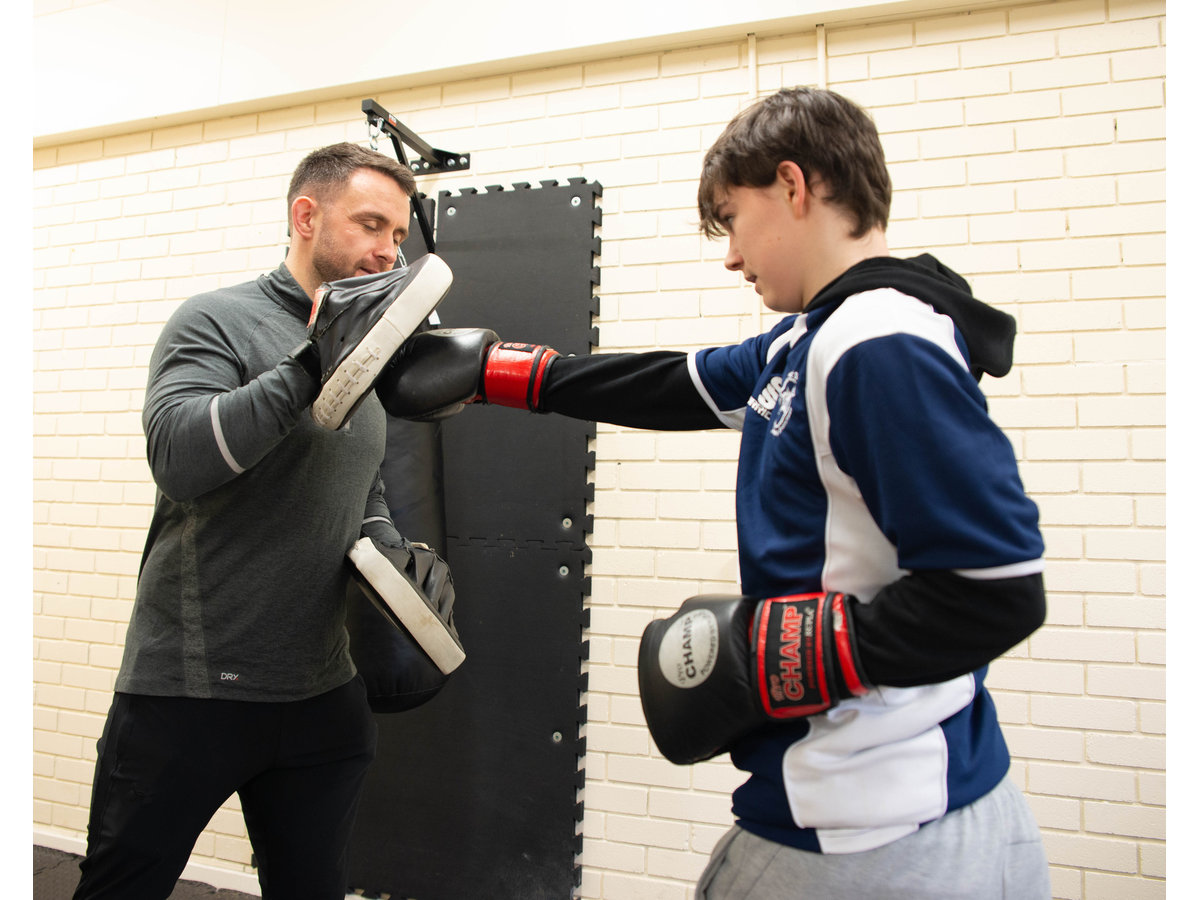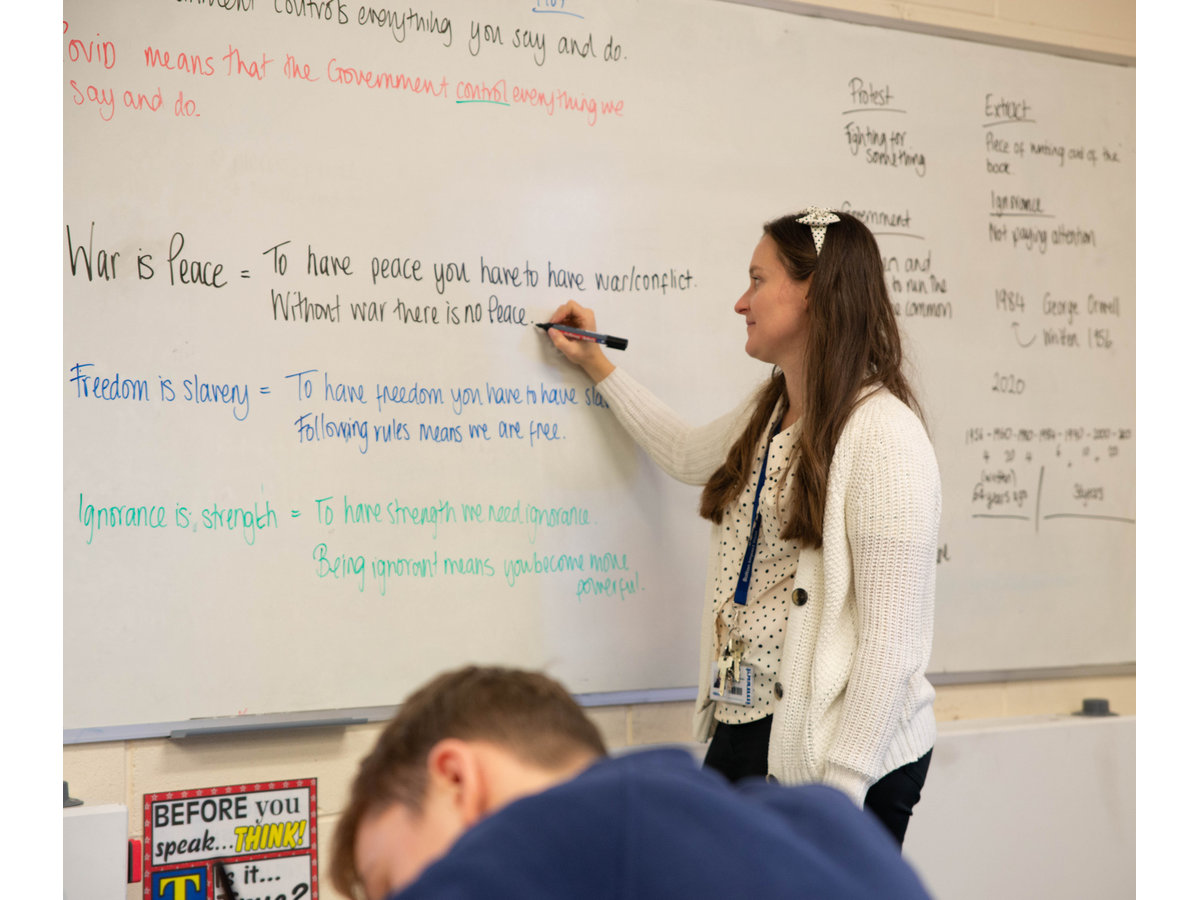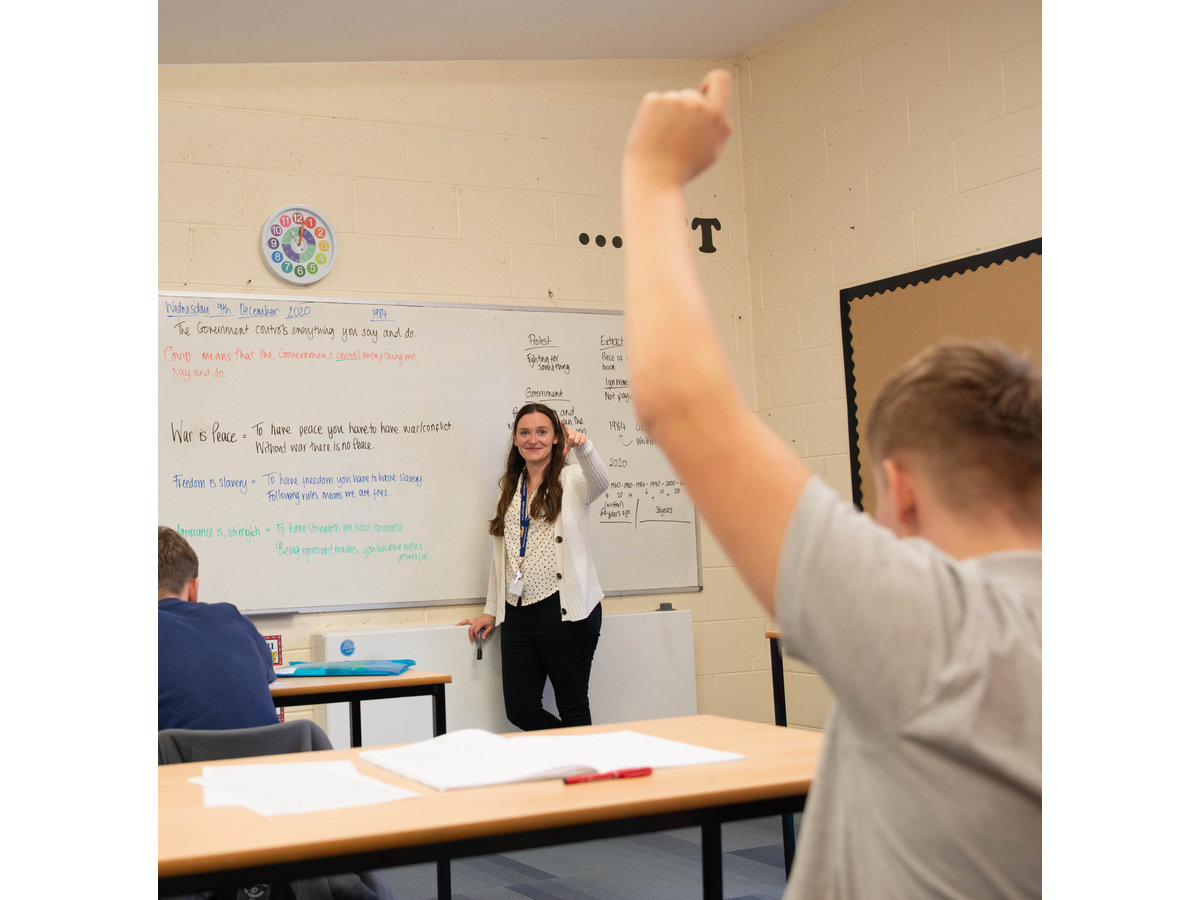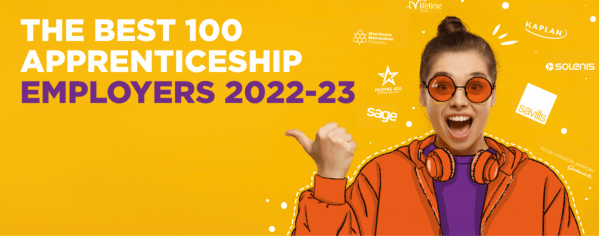At Lever Park we value a careers education and it forms a valuable part of the work we do with our pupils to ensure they are prepared and can achieve success in the wider world.
As part of our careers programme we will ensure pupils are offered independent careers advice and guidance to enable them to make informed choices about their next steps
This section of our website is designed to inform you of the careers programme available at Lever Park and to provide additional information to support both you and your child in this important stage of their life. The careers curriculum at Lever Park will be offered to all pupils Y7 - Y11.
If you have any further questions please contact:
Dan Prendergast (Careers Leader)
Telephone: 01204 332666
Email: prendergastd@boltonimpacttrust.org.uk
Lever Park Careers Programme overview
The fast-changing world of work puts an ever-greater demand on all of up to support students in making a successful transition from education to employment, helping them to identify and choose career opportunities that are right for them.
Statutory duties
- Section 42A of the Education Act 1997 requires governing bodies to ensure that all registered pupils at the school are provided with independent careers guidance from year 8 (12-13 year olds) to year 13 (17-18 year olds).
- The governing body must ensure that the independent careers guidance provided:
- is presented in an impartial manner, showing no bias or favouritism towards a particular institution, education or work option;
- includes information on the range of education or training options, including apprenticeships and technical education routes;
- is guidance that the person giving it considers will promote the best interests of the pupils to whom it is given.
- The Technical and Further Education Act 2017 inserts section 42B into the Education Act 1997 and came into force on 2 January 2018. This new law requires the proprietor of all schools and academies to ensure that there is an opportunity for a range of education and training providers to access all pupils in year 8 to year 13 for the purpose of informing them about approved technical education qualifications or apprenticeships.
- The updated provider access legislation (PAL) came into force on 1 January 2023. This new law requires schools to provide as least six encounters with approved providers of apprenticeships and technical education for all their students - Two encounters for pupils during the 'first key phase' (Year 8 & 9) that are mandatory. Two encounters for pupils during the 'second key phase' (Year 10 & 11) that are mandatory for all pupils to attend. Two encounters for pupils during the 'third key phase' (year 12 or 13) that are mandatory for the school to put on but optional for pupils to attend. The new legislation aims to help learners understand and apply for both apprenticeships and a broad range of technical education options including T-levels and Higher Technical Qualifications.
- The proprietor must prepare a policy statement setting out the circumstances in which education and training providers will be given access to pupils, and to ensure that this is followed.
Click on the following link to access the Careers Provider Access Policy for Lever Park.
Advice and Guidance Contact
if you wish to discuss any career related issues the Careers Leader at Lever Park is
Dan Prendergast
Telephone: 01204 332666
Email: prendergastd@boltonimpacttrust.org.uk
Students in Y10 and Y11 will be offered to opportunity to gain impartial careers guidance to look at their varied post 16 options.
The independent careers advisor for Lever Park is:
Ashley McCarrick
Connexions Career Service
BASE, Marsden Road, Bolton, BL1 2PF
Mobile: 07766298039

Post-16 Pathways
How can you help your child choose what to do after GCSE or sixth form, if you’re not sure what their options are? Here is a breakdown of the different levels of education and what options are most suited to which type of student. If your child learns best on the go through practical experience, then they may not do as well with academic or classroom led learning. Similarly, if they enjoy quiet, lecture led lessons, getting an apprenticeship and learning on the job would probably not suit them. In this section we will include information and documents to support you in guiding your child to choices that suit their personality and learning preferences so they have the best chance of success as they enter the next stage of their educational journey or career path. With this information we hope to give you the confidence to discuss things further with your child and have plenty of suggestions to help encourage and direct your child when they are not sure what to do next.
Here is a quick snapshot of the different pathways that your child can take:

Traineeships:
- These are flexible education and training programmes that include a work placement
- Traineeships are a great stepping stone between leaving school or college and finding a job or apprenticeship
- Traineeships allow students to try out a role with an employer to gain skills, training and support to help the to take the next steps into paid employment
- Traineeships can last from 6 weeks to 1 year, depending on how much support a student may need
- They are high quality work placements lasting 70 - 240 hours with a local employer
Here's a link to the gov.uk website for further information: Traineeships - GOV.UK (www.gov.uk)
Apprenticeship:
- You train while you work
- Most of the learning takes place on a real job site
- Apprentices (the people that train) earn a wage while they learn. They can be paid a minimum of £4.15 per hour
- A common misconception is that your child will not need their GCSE's to gain an apprenticeship. However, this is incorrect. Most apprenticeships require students to gain a minimum grade 4 for both Maths and English. If they are not obtained when they sit their GCSE's, they will get the opportunity to resit them in college
Further information on apprenticeships and Traineeships can be found on the accordingly labelled page.
College / technical school / sixth form
There are many 'types of courses' that are delivered at college:
T-Levels:
- Take place in a college - The course is 80% classroom based learning theory and practical skills and 20% (or a minimum of 45 days) with an employer within an industry placement
- T-levels are great for someone who has decided on their chosen career and want to learn the relevant skills in a classroom
- Students will learn core skills and knowledge and then choose to specialise for a specific occupation
A Levels:
- Traditional qualifications where a student will study some of their favourite subjects in depth
- They are academically assessed with an exam at the end
- They are the same level as T-levels but 100% of the time is spent in the classroom
- Typically a student will choose 3 subjects to study
- A-levels are often the chosen route for those wishing to go to university
BTECs:
- BTECs stands for the Business and Technology Education Council
- They combine practical learning with subject and theory content
- BTECs are divided into units, which cover specific areas of knowledge, skills and understanding of a particular sector or industry
Careers Pathway Options SEND Group 1-16+
Careers Pathway Options SEND Group 2-16+
Useful Apprenticeships Websites
https://gmacs.co.uk/education-and-training
https://nationalcareers.service.gov.uk/explore-your-education-and-training-choices
https://www.gov.uk/education/apprenticeships-traineeships-and-internships
https://amazingapprenticeships.com/parents/:
https://gmacs.co.uk/apprenticeships
https://www.apprenticeships.gov.uk/#
What is an Apprenticeship?
Apprenticeships are training programmes that combine college and genuine work placement.
They provide a way for people work and earn while they learn.
Although not set in stone apprentice will generally spend 80% of time working and 20% of time in college/being assessed.
Apprenticeships can be found across a wide range of sectors and levels.
They provide an alternative pathway for students who wish to begin work life rather than continue in full time education.
Apprenticeship Information
Below is a video sharing information on what an apprenticeship is, the different levels available and top tips for applying for apprenticeships.
Please click on the link below to access a list of the latest apprenticeships.
Please click below to access the best 100 Apprenticeships Employers 2022-2023
Useful Apprenticeships Websites
Traineeships
Traineeships are great for people that are not yet ready for an apprenticeship or a job. They provide you with the opportunity to develop work experience skills and prepare you for work by:
-
Work experience – to give the young person meaningful work experience and to develop workplace skills
-
Work preparation training – to prepare learners with the Skills for Work in a particular sector as well as Employability Skills covering areas like CV writing, interview preparation, job search and inter-personal skills
-
English and Maths – these are seen as crucial employability skills and will be developed during the traineeship
You won’t be paid, but you may be given expenses for things like travel and meals.
Suitability
You could be suitable to apply for a traineeship if you are:
-
16-24 years old with an EHC plan
-
Have no qualifications above GCSE or equivalent
-
Unemployed or work fewer than 16 hours per week and have little work experience
Useful resources
This is the go-to website to apply for a traineeship. You can filter by area and traineeship type. Click the link above to enter.
Traineeships
Please click the following link to view upcoming open evenings for colleges in Bolton and the surrounding area:
College Open Evening Dates
Labour Market Information
Labour Marker Information (LMI) helps provide information on current and growing trends in the workplace
This page will be updated regularly with useful website links to both national and local LMI
Useful Websites and Information
http://www.adzuna.co.uk - Job searches and statistics on a whole range of jobs
https://nationalcareers.service.gov.uk/ - Job profiles, qualification requirements, information and resources
https://nationalcareersservice.direct.gov.uk/home The National Careers Service website contains a wealth of information about career choices, including job profiles that outline training pathways, as well as a job matching tool.
https://icould.com/ - Take the Buzz quiz to discover your personality and then explore a wide of jobs and sectors
https://gmacs.co.uk/sectors - MACS - A tool to research careers and LMI and pathways– this has GMs top careers sectors and whole wealth of careers information and careers quizzes for students
Greater Manchester Apprenticeship Hub
This is a great website with an interactive regional map to show the apprenticeship providers in your area. There’s also loads of information about different types of apprenticeships, apprentice case studies, FAQs, information for parents and you can browse and apply for apprenticeships in Greater Manchester. Click the link below to enter.
Greater Manchester Apprenticeship
Gov.uk website
This is the go-to website to apply for an apprenticeship. You can filter by area and apprenticeship type. After creating an account you can apply for apprenticeships and they will email or text you about new apprenticeships and your applications. Click the link below to enter.
www.gov.uk/apply-apprenticeship
Notgoingtouni
This is a great website if you’re considering an alternative career pathway to college or university. You can search and apply for lots of different roles such as apprenticeships, traineeships, jobs, work experience as well as alternative college and degree courses. Also included:
-
‘Be inspired’ section – includes case studies and profiles for a range of people on different courses or careers
-
‘Advice centre’ – you can communicate with like-minded people to get information, tips, ideas, inspiration and more to help you on your journey
Click on the link below to find out more.
SACU Careers Quiz
This is a fantastic quiz where you click through a series of pictures to help decide what floats your boat! The quiz analyses your results to suggest potential careers and both college/university pathways or alternatives e.g. apprenticeships. From the results you can also access Labour Market Information and even current job vacancies. Click the link below to begin.
National Careers Service
Visit this website to read job profiles to find out what each job involves and whether it is right for you, complete an upload your CV, using the skills health check to find out the jobs that might suit you, search for courses and advice on how to get a job. Click the banner above to begin.
icould
Here you’ll find loads of inspirational videos from real-life storytellers offering an insight into their job. Each video also has additional information such as average salary, qualifications, skills, and past and future employment levels. You’ll also find helpful information for parents on ways to support young people through career choices and issues. Click the link below to begin.
- Fully funded Digital Marketing Skills Bootcamp for Women (19+) in NW England
- Free training to employment - Get into Data
- The Parents Guide newsletter - signup here for free

Greater Manchester is empowering its young people with the launch of Curriculum for Life – an online advice and guidance platform co-created by and for young people to answer questions they have about adulthood. The platform offers a wealth of engaging content such as articles, videos, case studies and links to local services. The articles were co-created with young people alongside subject matter experts to ensure accuracy and relevance.
Curriculum for Life is part of a range of digital services for young people in Greater Manchester, including Our Pass (offering travel, cultural, sporting, and lifestyle discounts for 16-18 year olds) and GMACS (providing free information on skills, work, and careers). Visit www.curiculumforlifegm.co.uk for more information
A parent’s guide to apprenticeships
This handy guide informs parents about what apprenticeships are, the benefits of being an apprentice, expected salaries and entry requirements. Click on the link below to enter.
Lever Park - Careers Parent/Carer
 We know talking about careers with your child can be daunting but here is access to monthly magazines and guides from careermag (https://careermap.co.uk) that will support you through the maze of post-16 and post-18 options. Registration is required, however this is free. The magazines will help you to strike up the best career conversations with your children using the best expert advice and resources.
We know talking about careers with your child can be daunting but here is access to monthly magazines and guides from careermag (https://careermap.co.uk) that will support you through the maze of post-16 and post-18 options. Registration is required, however this is free. The magazines will help you to strike up the best career conversations with your children using the best expert advice and resources.
The information within this page is designed to help Teachers to have a greater understanding of the Careers Strategy and to provide support to Pupils & Parents.
Information for Teachers
At Lever Park we are keen to engage with a range of employers to help our pupils to develop a greater understanding of the world of work and the opportunities available to them. 
If you would be interested in visiting our school to speak with pupils please contact our careers lead on the details below.
Dan Prendergast
Telephone: 01204 332666
Email: prendergastd@boltonimpacttrust.org.uk
All visitors to school will be subject to the relevant safeguarding checks.
The Framework
There are six learning areas for lifelong career development.
For a positive career you need to…
|
|
Grow throughout life
Grow throughout life by learning and reflecting on yourself, your background, and your strengths. |
|
|
Explore possibilities
Explore the full range of possibilities open to you and learn about recruitment processes and the culture of different workplaces. |
|
|
Manage careers
Manage your career actively, make the most of opportunities and learn from setbacks. |
|
|
Create opportunities
Create opportunities by being proactive and building positive relationships with others. |
|
|
Balance life and work
Balance your life as a worker and/or entrepreneur with your wellbeing, other interests and your involvement with your family and community. |
|
|
See the big picture
See the big picture by paying attention to how the economy, politics and society connect with your own life and career. |
The Learning aims for the 6 areas of focus are broad constructs relating to learning intentions. The tables below show learning areas and learning aims that are appropriate at Key Stage 3, Key Stage 4 and Post 16.
|
Grow throughout life Grow throughout life by learning and reflecting on yourself, your background, and your strengths |
|||
|
Key Stage 3 |
Key Stage 4 |
Post 16 |
|
|
being aware of the sources of help and support available and responding positively to feedback
being aware that learning, skills and qualifications are important for career
being willing to challenge themselves and try new things
recording achievements
being aware of heritage, identity and values |
responding positively to help, support and feedback
positively engaging in learning and taking action to achieve good outcomes
recognising the value of challenging themselves and trying new things
reflecting on and recording achievements, experiences and learning
considering what learning pathway they should pursue next
reflecting on their heritage, identity and values |
actively seeking out help, support and feedback
taking responsibility for their learning and aiming high
seeking out challenges and opportunities for development
reflecting on and recording achievements, experiences and learning and communicating them to others
planning their next steps in learning and work
discussing and reflecting on the impact of heritage, identity and values
|
|
|
Explore possibilities Explore the full range of possibilities open to you and learn about recruitment processes and the culture of different workplaces |
||
|
Key Stage 3 |
Key Stage 4 |
Post 16 |
|
being aware of the range of possible jobs
identifying common sources of information about the labour market education system
being aware of the main learning pathways (e.g. university, college and apprenticeships)
being aware that many jobs require learning, skills and minimum qualifications
being aware of the range of different sectors and organisations where they can work
being aware of the range of ways that organisations undertake recruitment and selection |
considering what jobs and roles are interesting
researching the labour market and the education system
recognising the main learning pathways and considering which one they want to follow and how they will access and succeed in it
researching the learning and qualification requirements for jobs and careers that they are interested in
researching the range of workplaces and what it is like to work there
researching how recruitment and selection processes work and what they need to do to succeed in them
|
developing a clear direction of travel in their career and actively pursuing this
actively seeking out information on the labour market and education system to support their career
having a clear understanding of the learning pathways and qualifications that they will need to pursue their career
actively researching and reflecting on workplaces, workplace culture and expectations
analysing and preparing for recruitment and selection processes
|
|
Manage career Manage your career actively, make the most of opportunities and learn from setbacks |
||
|
Key Stage 3 |
Key Stage 4 |
Post 16 |
|
being aware that career describes their journey through life, learning and work
looking forward to the future
imagining a range of possibilities for themselves in their career
being aware that different jobs and careers bring different challenges and rewards
managing the transition into secondary school and preparing for choosing their GCSEs
learning from setbacks and challenges |
recognising the different ways in which people talk about career and reflecting on its meaning to them
building their confidence and optimism about their future
making plans and developing a pathway into their future
considering the risks and rewards associated with different pathways and careers
taking steps to achieve in their GCSEs and make a decision about their post-16 pathway
thinking about how they deal with and learn from challenges and setbacks
|
being able to describe the concept of career and say what it means to them
building their confidence and optimism about their future and acting on it
actively planning, prioritising and setting targets for their future
considering the risks and rewards of different pathways and career and deciding between them
managing the transition into the post-16 learning context and preparing for post-18 transitions
being proactive about being resilient and learning from setbacks |
|
Create opportunities Create opportunities by being proactive and building positive relationships with others |
||
|
Key Stage 3 |
Key Stage 4 |
Post 16 |
|
developing friendships and relationships with others
being aware that it is important to take initiative in their learning and life
being aware that building a career will require them to be imaginative and flexible
developing the ability to communicate their needs and wants
being able to identify a role model and being aware of the value of leadership
being aware of the concept of entrepreneurialism and self-employment |
developing friendships and relationships and reflecting on their relationship to their career
starting to take responsibility for making things happen in their career
being able to reflect on and change their career ideas and the strategies that they are pursuing to achieve them
being willing to speak up for themselves and others
being able to discuss roles models and reflect on leadership
researching entrepreneurialism and self-employment
|
building and maintaining relationships and networks within and beyond the school
being proactive about their life, learning and career
being creative and agile as they develop their career pathway
representing themselves and others
acting as a leader, role model or example to others
considering entrepreneurialism and self-employment as a career pathway |
|
Balance life and work Balance your life as a worker and/or entrepreneur with your wellbeing, other interests and your involvement with your family and community |
||
|
Key Stage 3 |
Key Stage 4 |
Post 16 |
|
being aware of the concept of work-life balance
being aware that physical and mental wellbeing are important
being aware of money and that individuals and families have to actively manage their finances
being aware of the ways that they can be involved in their family and community
being aware of different life stages and life roles
being aware of rights and responsibilities in the workplace and in society
recognising the injustices caused by prejudice, stereotypes and discrimination in learning and workplaces |
reflecting on the different ways in which people balance their work and life
reflecting on their physical and mental wellbeing and considering how they can improve these
recognising the role that money and finances will play, in the decisions that they make and, in their life and career
recognising the role that they play in their family and community and considering how that might shape their career
considering how they want to move through different life stages and manage different life roles
developing knowledge of rights and responsibilities in the workplace and in society
identifying what they can do, individually and with others, to challenge prejudice, stereotyping and discrimination in learning and workplaces |
planning for the kind of balance of work and life that they want
taking action to improve their physical and mental wellbeing
beginning to manage their own money and plan their finances (e.g. thinking about student loans)
actively shaping their involvement in their family and community as part of their career planning
planning for different life stages and considering the different life roles that they want to play
being aware of their role in ensuring rights and responsibilities in the workplace and in society
taking action to challenge prejudice, stereotypes and discrimination in learning and workplaces when they encounter them
|
|
See the big picture Explore the full range of possibilities open to you and learn about recruitment processes and the culture of different workplaces |
||
|
Key Stage 3 |
Key Stage 4 |
Post 16 |
|
being aware of a range of different media, information sources and viewpoints
being aware that there are trends in local and national labour markets
being aware that trends in technology and science have implications for career
being aware of the relationship between career and the natural environment
being aware of the relationship between career, community and society
being aware of the relationship between career, politics and the economy |
evaluating different media, information sources and viewpoints
exploring local and national labour market trends
exploring trends in technology and science
exploring the relationship between career and the environment
exploring the relationship between career, community and society
exploring the relationship between career, politics and the economy |
evaluating different media, information sources and viewpoints and reflecting on the best way to get information for their career
exploring and responding to local and national labour market trends
exploring and responding to trends in technology and science
exploring and responding to the relationship between career and the environment
exploring and responding to the relationship between career, community and society
exploring and responding to the relationship between career, politics and the economy |
|
The eight Gatsby Benchmarks are the foundation of the Careers Strategy, a statutory requirement for maintained schools, academies, further education colleges and sixth form colleges. Providing high-quality career guidance in schools and colleges is vital to young people so they can make well-informed decisions on their future. The Gatsby Benchmarks outline how we can ensure a high quality careers strategy is in place across our academy |
|
|
|
|
For more information, click here! Further information regarding the Careers Strategy at Lever Park can be found in our Careers policy
|
|
Impact Measurement, Assessment and Destination Data
Continuous measurement and assessment of the careers programme is carried out throughout the year ensuring that the careers programme remains effective and meets the needs of all students. Assessment and evaluations are carried out in various ways such as student, parent and employer feedback, questionnaires, completion of Compass + and scrutiny of post 16 data.
